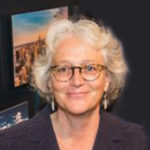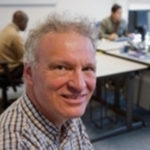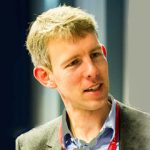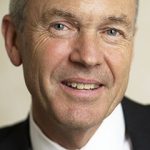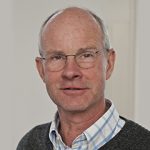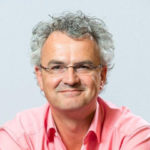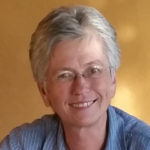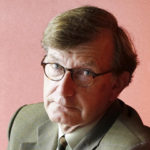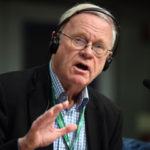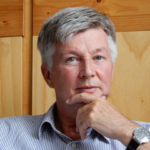Program
Day 1
18 Apr 2018
Day 2
19 Apr 2018
09:00 - 10:00
Arrival / Registration / Coffee
10:00 - 10:10
10:10 - 10:20
10:20 - 10:50
Save Our Skies
The impact of Climate Change and other ecological changes exacerbated by human activity on the atmosphere is well-documented. Our expert speaker will provide a scientific analysis of those impacts.
10:50 - 11:20
Save Our Skins
Have parts of our world already become too hot to live? The Max Planck Institute foresees that parts of the Middle East and North Africa will become so hot that human habitability is compromised.
11:20 - 11:40
11:40 - 12:00
Coffee Break
12:00 - 12:10
12:10 - 12:40
Save Our Seas
In this session, our expert speaker Dr Lennart de Nooijer will talk about the state of our seas and oceans.
12:40 - 14:00
Exhibition & Lunch Break
14:00 - 14:30
Save Our Shores
The keyword of this session is Sea Level Rise and its associated consequences for marine wildlife and coastal communities. Sea level rise is threatening coastal areas. Communities and entire cities located at the shores are at risk of being flooded.
14:30 - 15:00
Save Our Streams
Large-scale dams, deforestation, pollution and melting glaciers all impact on crucial streams and river basins. One example is the Tibetan Plateau, which feeds major rivers in South, South-East, East and Central Asia, providing water for 2 billion people.
15:00 - 15:20
Coffee Break
15:20 - 15:50
Save Our Soils
Soil is often overlooked when people discuss environmental degradation. But in many parts of the world soils are irreversibly degraded and polluted with serious risks for ecosystem integrity and food... Read More
15:50 - 16:20
Save Our Space
Debris is increasingly polluting space. What are the implications? They might go further than you think. The talk by Prof. Dr. Eberhard Gill will give you a comprehensive overview of how much space junk we are talking about and why we should care about it.
16:20 - 17:30
17:30 - 18:00
Foyer
“Save our Swing”
Musicians Against Climate Change - Gidon Nunes Vaz Sextet
18:00 - 20:00
Evening Reception / Networking
08:30 - 09:30
Arrival / Registration / Coffee
09:30 - 09:50
09:50 - 10:20
Save Our Species
Due to habitat destruction, pollution, poaching, illegal hunting and fishing, and climate change, species around the world are becoming extinct at an alarming rate. This is best recorded by the IUCN, the International Union for the Conservation of Nature, in its periodical Red List.
10:20 - 10:50
Save Our Selvas
In the past decades the relationship between forests and climate change has focused on the amount of carbon stored in forests and the amount of carbon dioxide released when forests are converted in other land uses. Only recently we begin to understand the relationship between patters of rainfall and forest cover.
10:50 - 11:10
Coffee Break
11:10 - 11:40
Save Our Seeds
Our present-day crops for food and agriculture have once been developed from wild plant species through adaptation by humans, a process that is known as domestication. This process resulted in crops in which only a subset of the wild genetic diversity was represented, a concept that is referred to as the domestication bottleneck.
11:40 - 12:00
12:00 - 12:30
Save Our Systems/Civilisations
Barry Commoner’s first law of ecology basically says it all: Everything Is Connected to Everything Else. In this session, Prof. Dr. Klaas van Egmond will bring together the “spherical” SOS’s from a systems ecology perspective and give us insights into what the connections are. He will also talk about what the implications for our civilisations are.
12:30 - 14:00
Exhibition & Lunch Break
14:00 - 14:10
14:10 - 14:40
Save Our Souls
Our physical health and spiritual well-being are intrinsically linked to ecosystems. All life rests on them, meaning in other words: do not invoke the wrath of Mother Nature, but enjoy her benign beauty. Our expert speaker Johan van de Gronden, moral philosopher and conservationist will provide us with his insights of many years working in this field.
14:40 - 15:20
Save Our Science
In times of fake news, fake science and social media, scientific accuracy is at risk of being eroded. However, its importance for painting an accurate picture of how the world works, where we are at and where we will be going is more important than ever.
15:20 - 15:40
Coffee Break
15:40 - 16:10
Save Our Security
The spherical themes discussed at this Symposium also have strong security implications. The degradation of the natural environment can cause or exacerbate conflicts, and conflicts in turn can lead to the degradation of the environment, leaving us in a vicious cycle.
Speaker General (ret) Tom Middendorp, former Chief of Defence of the Netherlands, has many years’ experience in the military and knows exactly why environmental degradation is a threat to our security.
16:10 - 16:40
16:40 - 17:30
Save Our SDGs (Sustainable Development Goals)
Panel discussion with speakers on the way forward. Introductory remarks by Hugo von Meijenfeldt and contributary remark by Alide Roerink. This panel discussion will take place in the framework of... Read More
17:30 - 19:30

